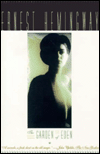Books |
The Garden of Eden
Ernest Hemingway
By
Published: May 03, 2012
Category:
Fiction
I was talking with a well-known novelist — female, if you must know — about Ernest Hemingway. I praised the early books, especially the first one, The Nick Adams Stories. She liked many more, and, especially, "The Garden of Eden." As it happens, that is one of my favorites, for the story and the writing, but even more for the risks Hemingway takes.
We think of Ernest Hemingway as the writer who celebrated war and hunting and fishing in short declarative sentences that hit us with the power of a telegram. And as the sad, sick, burned-out man who put a shotgun in his mouth and blew his brains out.
But there was another, far more complicated Hemingway. His mother wanted a daughter and, until he was four or five, she raised Ernest as a girl. Cross-dressing was common in his family. And his son Gregory became Gloria.
He dealt with this murky legacy in only one book — and he intended "The Garden of Eden" to be one of his masterpieces. He worked on it for more than 15 years, writing some 200,000 words in the process.
The book that has, decades after his death, been culled from that bulky manuscript is not the book he intended. It’s 256 pages long, a quick read (and quicker if you skip the stuff about hunting in Africa, which is pure padding and wouldn’t be missed if it had been cut). Obviously, most of his book is missing — but what remains is a revelation. [To buy the paperback from Amazon, click here. For the Kindle edition, click here.]
Consider: In the 1920s, a young American writer named David Bourne publishes his first novel. He marries Catherine, a beautiful and rich young woman. They travel to the South of France for their honeymoon. There, in a small hotel in a coastal town, David begins his next book while Catherine works on her suntan.
There are terrific scenes that put you into the action: David catching a fish in the canal, the ordering of drinks and meals. The meals are enough to make you run to the fish market. Like this:
They were hungry for lunch and the bottle of white wine was cold and they drank it as they ate the celery remoulade and the small radishes and the home pickled mushrooms from the big glass jar. The bass was grilled and the grill marks showed on the silver skin and the butter melted on the hot plate. There was sliced lemon to press on the bass and fresh bread from the bakery and the wine cooled their tongues of the heat of the fried potatoes….
So there they are, in a zone of unimpeded happiness, when Catherine starts to go funny in the head. First she cuts her hair. Then she proposes a seemingly harmless variation in their sexual relationship. And then she brings another woman into the relationship.
The fantasy of two woman for one man is, surveys tell us, the favorite fantasy of American men. If that’s true, men who feel this way should rush to this book, for in addition to some highly charged, very erotic writing, there is also a stark account of the psychological cost of such arrangements. And women who like the occasional "dirty’ book should delete their copies of 50 Shades of Grey from their Kindles and read a master at work.
I won’t spoil the plot — though it’s obvious that the mathematical formula of three divided by two doesn’t work out well. But the plot’s not the attraction here. It’s Hemingway, really getting inside the character of a woman. It’s romantic writing from a man whose prior efforts in that form were chilly and male. And it’s the pleasure of the South of France in the 1920s, a paradise that was cheap and uncrowded.
Love. The South of France. Complications and kinks. As a combination, the elements are unbeatable. This novel has been ignored long enough — it deserves to be one of Hemingway’s better-known books. Read it with a cold drink, skim the African passages, and it will make for a memorable evening.
VIDEO
The novel recently became a stinker of a movie. This trailer will make you think the book is vapid to the max. Whatever you do… avoid the film.


